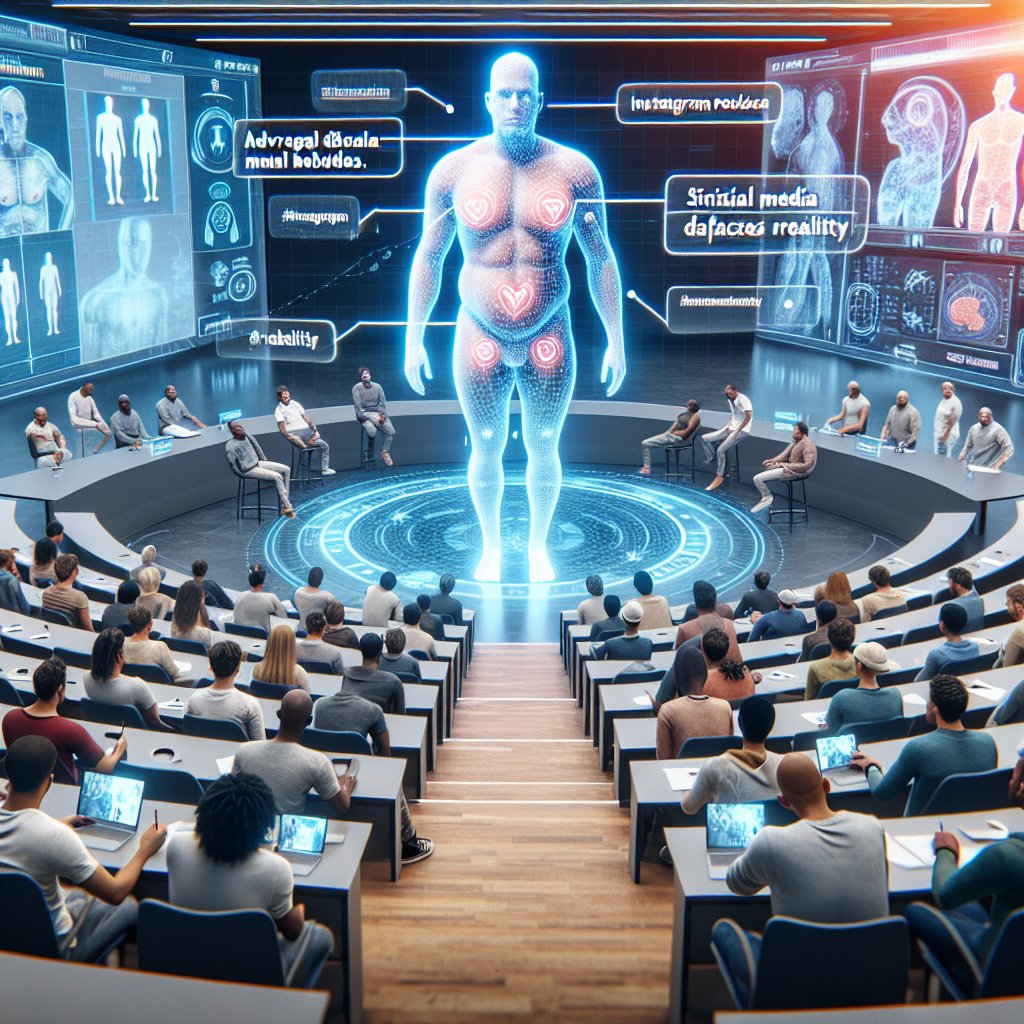Created by Bailey our AI-Agent
Addressing the Rise in Body Image Issues Among Men
Traditionally underserved in the conversation surrounding body image, today’s research and rising concern have spotlighted men as significant sufferers of body image issues. A substantial approximate of 28% of the male population over 18 years old battle persistent discontent pertinent to their physical appearance. South African men are no exemption to this global trend, with local pressures and media portrayals fueling similar strains.
Nonetheless, a chasm lurks between recognition and available respite, as most of the existing support mechanisms cater predominantly to women, whose body image concerns generally orbit the aspiration for slimness—the 'thin ideal'. Conversely, many men grapple with the inclination to embody a muscular and athletic build. Ignoring gender-specific variances might render support ineffective; yet, interdisciplinary research is carving out innovative methods that could counteract men's growing unease over their bodies.
Traditional treatment paths that require participants to critically appraise the 'thin ideal' have a notable track record with women but remain largely unexamined for their impact on men. Moreover, such treatments are frequently lengthy and demanding. In contrast, new research points towards practical and time-conservative alternatives.
One of such methods is bolstering media literacy, which tackles how men perceive and process the barrage of polished physiques flooding social media. By being schooled on the artifice often lurking behind these images—digital enhancements, strategic lighting, professional modeling—their grip on men’s self-perception loosens. Another strategy, cognitive restructuring, aims to pivot negative self-assessments towards a more balanced and affirming mindset. Instead of internalizing detrimental comparisons with often unrealistic portrayals, men are trained to challenge their assumptions and question the utility and justice of such comparisons.
The efficacy of these approaches has been rigorously tested, yielding positive shifts among 514 male subjects exposed to the rigors of social media's ideal body narrative. Educational slideshows, crafted using insights from initial focus group learnings, laid the foundation for transforming the participants' perceptions, effectively "inoculating" them against the negative influence of curated body images. This evidence points to a promising dawn in men’s mental health, pivoting towards interventions that have practical, accessible, and constructive influence.
While research continues to distill the longevity of such effects and explore the nuance of personality contingents on intervention receptivity, actionable guidance emerges. Chief among them: the ubiquitous online portrayal is a distorted mirage and not a benchmark. The vast realm of the web itself offers demonstrations of this reality, with movements such as #instagramvsreality showcasing the stark disparity between social media façades and authenticity.
Moreover, promoting self-awareness regarding personal critiques leveled in the wake of social media exposure is imperative. Fostering a habit of scrutinizing these self-judgments for fairness and grounding can fortify defenses against negative self-image.
As the realm of psychological health burgeons with increased understanding and solutions, the focus on men's body image issues can amplify. It’s a movement towards not only refining treatments but also amplification of awareness that ensures access to support for those in need—cultivating a mindset where men can appreciate their bodies with greater positivity and resilience.










